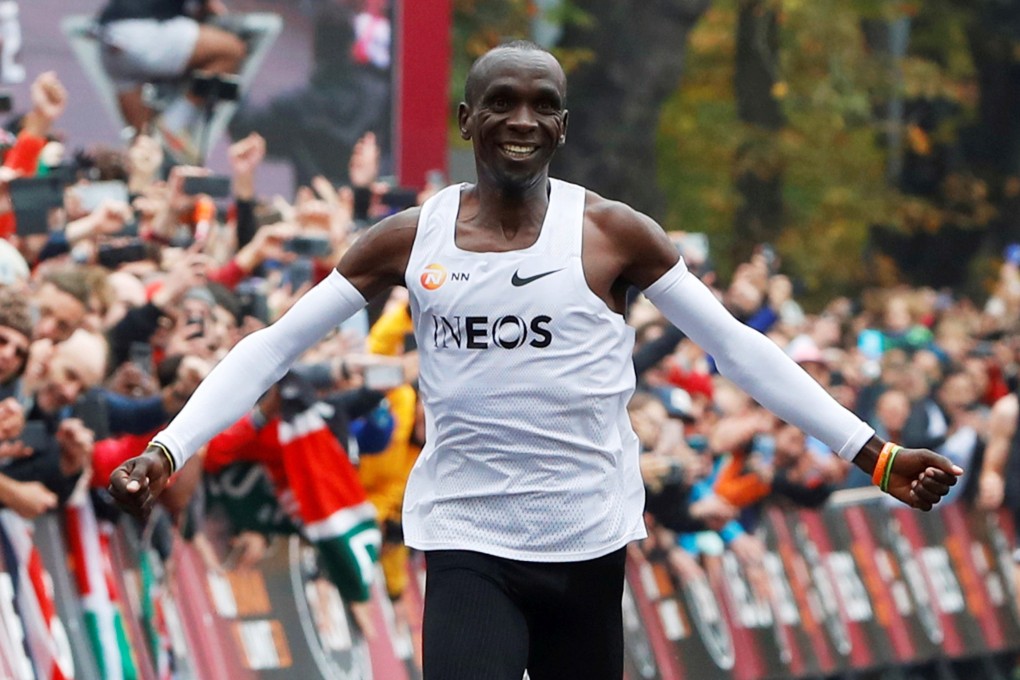Editorial | Marathon feat shows there is no limit to human endeavour
- Kenyan Eliud Kipchoge’s sub-two-hour effort may not officially be a world record but it does show the ‘positivity of sport’

For as long as men have raced each other, elusive and seemingly unattainable performance goals have captured the imagination. If you believe that things always get better, there is never any doubt that someone will achieve a goal sooner or later. Then, in no time, the feat often becomes commonplace or even a benchmark of elite competition.
Witness the first sub-four-minute mile by English runner Roger Bannister in 1954. Within a few years, multiple runners were repeating it in single events. Likewise with the first sub-10-second 100-metre sprint by American Jim Hines at the 1968 Olympics. The first three finishers at the 2012 Olympics ran under 9.8 seconds.
It still seems a stretch, however, to imagine that it won’t be long before Kenyan Eliud Kipchoge will have to share with a number of other people the achievement of having run a marathon (42.195 kilometres or about 26 miles and 385 yards) in under two hours, as he did by just 20 seconds recently in Vienna, Austria. It is equivalent to running about 21 kilometres, or 13 miles, per hour. It is a massive eight minutes faster than his 2016 Olympic winning time. But it will not be recognised, because of the manufactured conditions tailor-made for record-breaking under which he ran the distance.
A team of scientists established optimum conditions and tactics for the attempt, including the exact starting time on a flat road course. Kipchoge followed teams of runners taking turns to set the pace. A car drove at the exact pace needed and projected lasers on to the road for the pacemakers to follow. They moved in formation to give Kipchoge wind protection. Such assistance and the absence of competitors ruled out recognition of a world record.
No one would begrudge Kipchoge if he became the first to break two hours in recognised competition and officially claim the world record. After all, he has already come close with the current world record of two hours, one minute and 39 seconds set in Berlin last year. He explained his sub-two-hour effort as an attempt to inspire people and tell them no human is limited. We don’t know about that. But if it instils what he calls the “positivity of sport” and encourages more people to run, it will all have been worthwhile.

